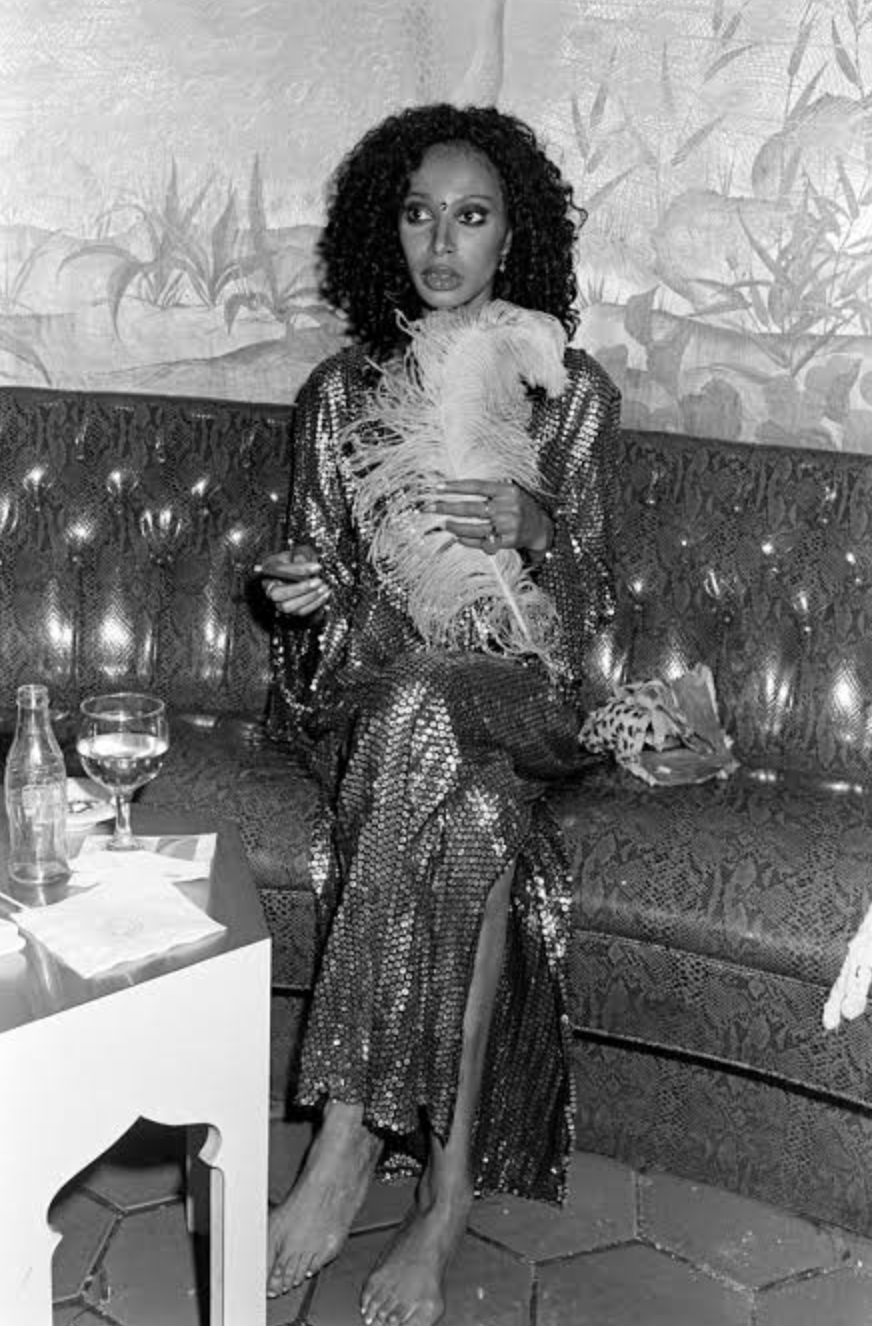Fashion Wouldn’t Be the Same Without These Black Icons—Here’s Why
Image Credit:WWD
Fashion has been a part of my life for as long as I can remember. Sunday nights were reserved for flipping through Black hair magazines, searching for the perfect hairstyle to wear to school the next day. My mom always had a stack of Jet magazines, and even though I was too young to care about most of the articles, I’d still skim through them, taking in the photos and celebrity features.
Surprisingly, at one point, I thought I’d grow up to write for Essence magazine—the articles, the photoshoots, the way they covered style and culture felt like something I wanted to be a part of. And then there was my first fashion show in middle school—Fashion Fair. Do you remember that? The glamour, the models, the music—it was my first real glimpse of the power of Black fashion, and I was hooked.
Looking back, all of those moments—the magazines, the music videos, the fashion shows—led me to attend fashion design school and eventually launch AutumLove.com. But here’s the thing—none of this would exist without the Black creatives who paved the way. From the streets to the runway, Black culture has shaped fashion in ways we see every day, even if it doesn’t always get the credit it deserves.
So, in honor of Black History Month, let’s talk about the moments, icons, and trends that changed fashion forever.
1. The First Black Supermodel: Donyale Luna
Image Source: Reddit
Before Naomi, before Tyra—there was Donyale Luna. In 1966, she became the first Black woman to land a Vogue cover, shaking up an industry that rarely made space for diverse beauty. Her features were striking, her presence unforgettable, and her impact? Huge. She walked so every Black supermodel after her could strut.
2. The Birth of Streetwear: How Hip-Hop Took Over Fashion
Photo:@jerrylorenzo ; @dapperdanharlem
If you’ve ever thrown on an oversized hoodie, fresh sneakers, or a designer logo tee, you’ve got hip-hop to thank for that. The influence started in the ‘80s with Run-D.M.C.’s Adidas tracksuits and Dapper Dan remixing luxury logos in Harlem—long before brands like Gucci even acknowledged Black consumers. Fast forward to today, and the biggest streetwear brands—Supreme, Off-White, Fear of God—are all built on the foundation that hip-hop created.
3. Ann Lowe: The Black Designer Behind Jackie O’s Wedding Dress
Madeline Couture Fashion Show, Berkshire Hotel, 1962, Ann Lowe and model Alice Baker.
Photo by Bettmann Archive/Getty Images
Jackie Kennedy’s wedding dress is one of the most famous of all time, but what most people don’t know? A Black woman made it. Ann Lowe was the mastermind behind the gown, but when the press covered the wedding, she wasn’t even credited. Despite designing for the social elite, her work was overlooked for years. Now, fashion history is finally giving her the flowers she always deserved.
4. The Rise of Black-Owned Fashion Brands
Photo:@hanifaofficial
Let’s talk about Telfar, Pyer Moss, and Hanifa—Black-owned brands that have completely redefined what fashion looks like today. The Telfar Shopping Bag became the “It” bag without a luxury price tag. Kerby Jean-Raymond’s Pyer Moss collections? They don’t just make a statement—they tell a whole story. And Hanifa’s viral digital fashion show? A game-changer. Black designers aren’t just breaking into the industry anymore; they’re reclaiming it.
5. The Zoot Suit: When Fashion Became a Political Statement
African American teenagers in zoot suits, 1942 Image Source
Back in the 1930s and ‘40s, the zoot suit wasn’t just a bold fashion choice—it was a statement of defiance. Worn by Black and Latino men, these oversized suits were about standing out and standing up in a world that tried to push them aside. But not everyone liked that—police and servicemen literally attacked people for wearing them during the Zoot Suit Riots. Fashion has always been political, and the zoot suit is proof.
6. Why Black Church Fashion is Its Own Runway
If you grew up going to a Black church, you already know—Sunday morning fashion is serious business. The hats? Iconic. The suits? Impeccable. The shoes? Always polished. Church fashion has been a cultural staple for generations, blending tradition, self-expression, and a little (okay, a lot of) drama. It’s not just about looking good—it’s about celebrating your best self, and that’s a message that never goes out of style.
7. The Black Panthers Weren’t Just Revolutionary—They Were Style Icons
The berets. The leather jackets. The sunglasses. The Black Panther Party knew that fashion was more than just clothes—it was a uniform of power. Their all-black outfits became a symbol of resistance and unity, proving that how you dress can be just as powerful as what you stand for. Today, you can still see the influence everywhere—from designer collections to everyday streetwear.
8. African Prints and Their Influence on Global Fashion
Left Duro Olowu don Fashion Week runway show 2007 Photo Marcio Madeira :Photo on the right Jamie Foxx Wearing Ozwald Boateng
If you’ve ever rocked a dashiki, Ankara print, or Kente cloth, you’re wearing centuries of history. These patterns are more than just fabric—they represent heritage, culture, and pride. And while Black communities have been rocking these prints forever, it took designers like Duro Olowu and Ozwald Boateng to bring them to luxury fashion’s main stage. Now, these prints aren’t just showing up at family gatherings—they’re headlining runways.
9. The First Black Designer to Shake Up the Fashion World
Photo:@stephenburrowsworld
In 1974, Stephen Burrows made history as the first Black designer to compete in the Battle of Versailles, a high-profile fashion showdown between American and French designers. His bold colors, body-hugging silhouettes, and effortless movement stole the show, proving that American fashion—specifically Black creativity—belonged on the global stage.
10. Sneaker Culture? That’s Black Culture.
Gerry Gershoff/Wire Image
Would sneaker culture even exist without Black influence? Nope. From Michael Jordan’s game-changing Air Jordans to Kanye West’s billion-dollar Yeezy empire, Black athletes and artists took sneakers from athletic gear to a full-blown fashion movement. And let’s be real—without the hype and demand from Black consumers, there’d be no resale market, no sneaker drops, and definitely no sneakerheads camping outside stores for the latest release.











